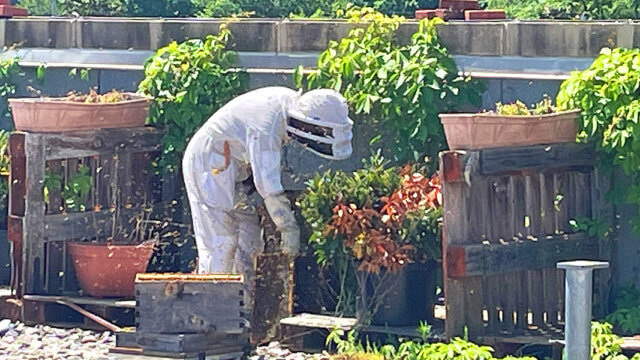Well-being initiatives have certainly been on the rise in the hotel industry, with sustainability and sanitation measures trending upward, especially post-COVID. One area that’s seen a shift as well has been food and beverage, with a greater focus on locally sourced ingredients.
Following suit is the JW Marriott, Anaheim Resort in Anaheim, CA (pictured above), which has incorporated sustainability into its food and beverage program, including its seed-to-table culinary experience.
“Sustainability has recently become a trending topic for F&B operations and we are seeing a lot more catering programs commit to a sustainability program to help minimize waste and cut down production costs,” said Nusrat Mirza, general manager, JW Marriott, Anaheim Resort. “The industry is seeing food and beverage programs become more conscious of balancing taste with nutrition, offering options for every dietary restriction and using eco-friendly materials like sustainable packaging and plating. The industry is also seeing a trend with operations incorporating fresh ingredients from farms and gardens, eliminating the process of treating ingredients with potential chemicals that will increase the ingredients’ shelf life.”
JW Marriott Anaheim’s second-floor rooftop garden focuses on fruits, vegetables and herbs for seasonal ingredients featured on menus throughout the year, including its cocktails, pizzas, salads, entree sides and more.

“The seed-to-table program at the JW Marriott, Anaheim Resort started as an homage to the strawberry field that once grew where our property is now located,” he said. “Once our seed-to-table garden was rooted, our F&B team continues to find inspiration with fresh ingredients and seasonal produce to create new dishes and cocktails, and guests enjoy the quality of food and the tranquility of being able to relax in the garden itself.”
The garden is organized into sections, Mirza explained, of fruits, vegetables, herbs and succulents and local flowers. And, being located in Southern California, the weather is ideal year-round to grow these seasonal ingredients and herbs.
During autumn and winter, garden ingredients like squash are incorporated into seasonal dishes and cocktails. In spring and summer, seasonal berries and vegetables are included in the salads, cocktail ingredients, dinner garnishes and more.
“Every day, our food and beverage team will pick the ingredients they need to prep for the evening full of dinner and cocktails,” Mirza said. “Our F&B team is trained to educate guests on dishes and cocktails that highlight fresh ingredients from our garden. Fresh ingredients are also reflected on our menus. When guests arrive on property, they are encouraged to walk through our second-story rooftop garden to enjoy the tranquility of the garden themselves.”

Located on the 11th floor at JW Marriott Anaheim’s Parkestry Rooftop Bar & Restaurant, guests can feast on more sustainable items. The seed-to-table culinary experience is also incorporated in the resort’s events culinary program and throughout all of the restaurants on the property.
“Guests are elated when they are educated about what a seed-to-table program entails, and that we provide fresh ingredients from our garden instead of sourcing it elsewhere,” he said. “They appreciate the fresh ingredients, the sustainability initiative and the transparency of where their ingredients come from. Additionally, our mixologists at our rooftop bar and lounge, Parkestry, are thrilled to cut freshly basil and lavender for our signature cocktails and our chefs find excitement in being able to use freshly grown herbs such as cilantro, mint and rosemary.”

Mirza said that the hotel is continuing to enhance its seed-to-table program with the opening of Tocca Ferro, an Italian chophouse on-site. The restaurant is currently open for breakfast every day, but the F&B team has plans to expand to a curated seed-to-table dinner menu this year, created by Executive Chef Adam Haverland, Mirza said.
“Hotel operations must adapt to the consumer focus and become conscious of sustainability initiatives and overall wellness guests are craving to be successful,” Mirza said. “When the industry seeks sustainable options such as farm to table, they become less reliant on other vendors that may contribute to the carbon footprint, and won’t be as affected when there are production shortages. Throughout the pandemic, consumers are more aware of what they are consuming and where it is sourced which has become a vital factor on determining F&B offerings. The established seed-to-table program at the JW Marriott, Anaheim Resort offers has been a success with shifting to guests’ needs such as dietary restrictions, cutting down production costs and minimizing waste.”



